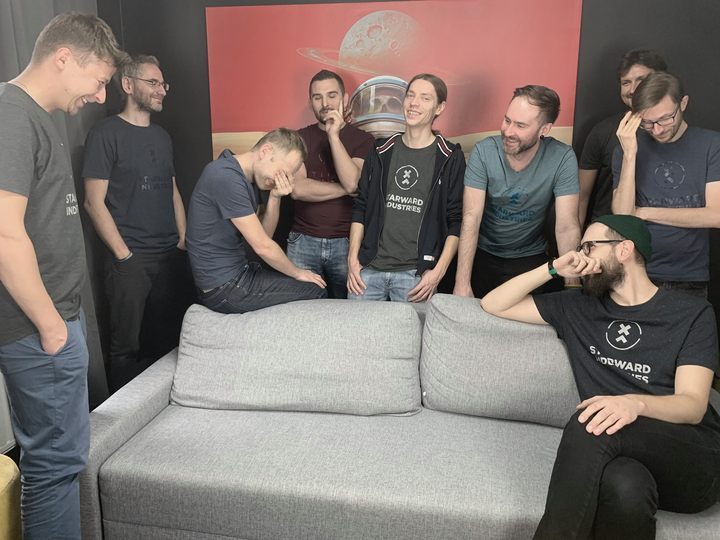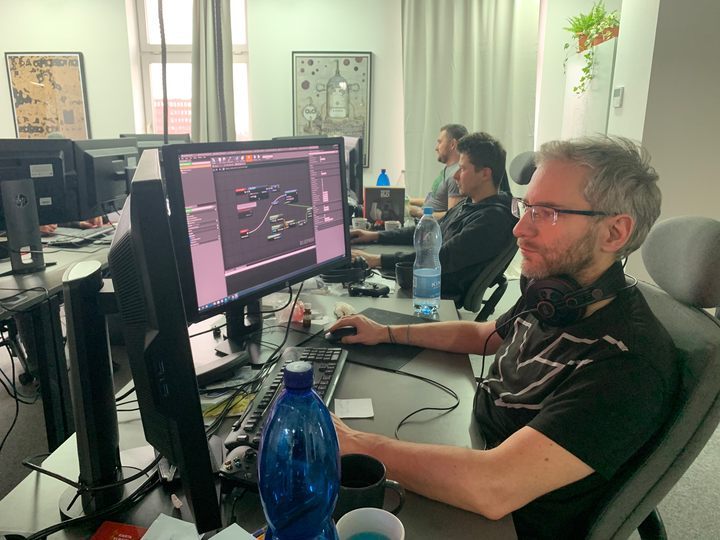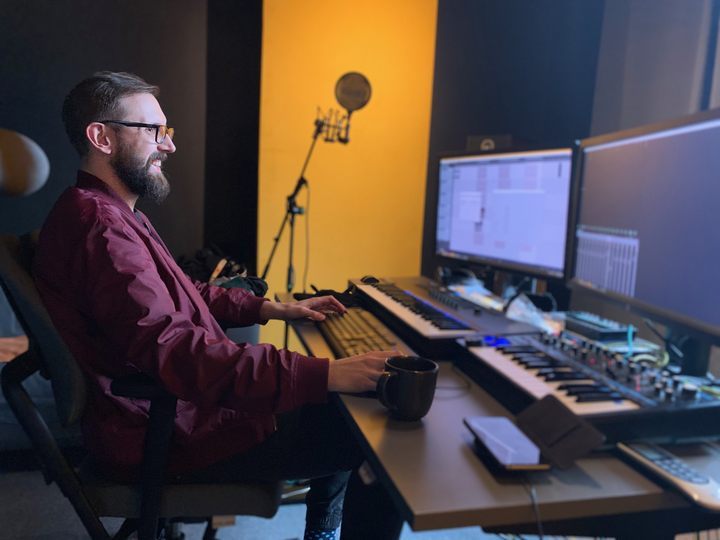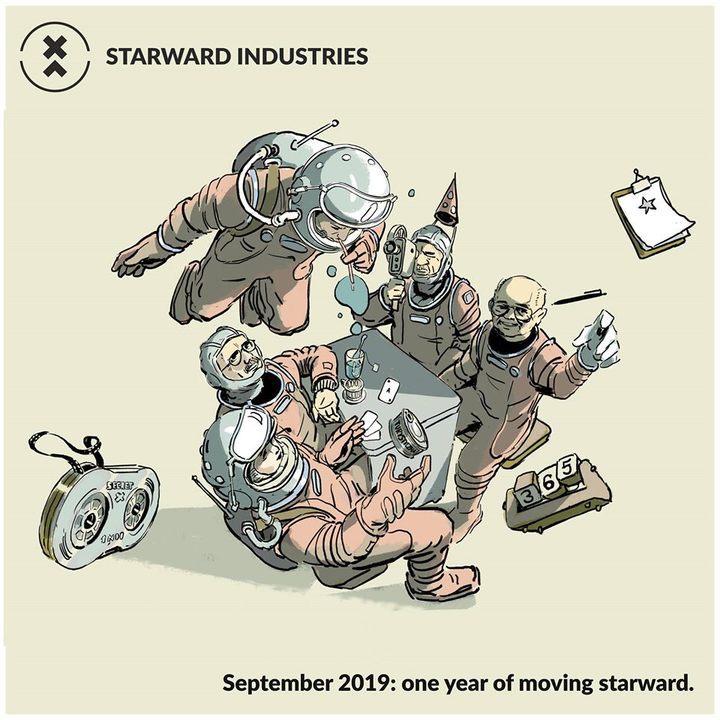People first. Invincible - New Sci-fi Game Based on Lem's Book - Conversation with the Developers

- Invincible - New Sci-fi Game Based on Lem's Book - Conversation with the Developers
- Retrofuturism and Atom Punk
- What is the game based on Stanislaw Lem's book about?
- People first
People first
We devoted a lot of time to talk about the people developing the game. It took several months to complete the team, but eventually, a group of very experienced individuals was assembled. So far, five people hail from CD Projekt RED, along with a few dudes from Bloober Team (Layers of Fear), Techland (Dying Light), and Platige Image. Don't miss the chance to meet them! "People who wonder if Lem's work has fallen into good hands can rest reassured," Marek Markuszewski said.
I was looking for people who have already had a lot of experience, certified by recognition and good sales of the games they’d worked on, but who also hadn't rested on laurels, still eager to create the game of their lives.

One of the first people to join the team was Daniel Betke (lead programmer). The guys met in Reality Pump, where Daniel was the main developer the engine, which powered many different games (including Two Worlds, a grand-bland RPG with an open world that was released simultaneously on PC and consoles). Daniel alone does things that are usually done by entire teams. Things like quest systems, interactions, animations, etc. This is pretty difficult stuff, and Daniel handles it completely on his own," Markuszewski told me. "This was, by the way, the key factor in the selection of candidates," he adds. "We wanted to have a small and efficient team. Everyone had to be experienced and as independent as possible."

Mariusz Antkiewicz is the gameplay designer. He also worked in CD Projekt RED, where his main responsibility was creating the mechanics for Cyberpunk 2077. Sebastian Spluszka, on the other hand, is an environment artist, responsible for 3D graphics. As Markuszewski says “He combines cutting-edge techniques with tremendous artistic sensitivity. I met Sebastian in CD Projekt RED, but he was also the chief 3D designer in Bloober Team – for a good reason, because this guy defines the quality if the in-game worlds." Did you like the caves and dungeons in the Witcher 3? Well, it was Sebastian who made them.
Mateusz Lendor is in charge of the animations. He took part in various projects – from cinematics to The Witcher 2 and Dead Island; from Pepsi ads, to The Witcher 3. He will breathe life into the world of Stanislaw Lem's novel, making it alive and animate.
Wojtek Ostricharz is the artistic director. "I didn't know Wojtek before, but he had excellent references." He has also worked for many companies whose games we play or watch every day (including Platige Image and Techland) and created trailers for Halo 5 Guardians and Dead Island Survivors.
Then, there's Piot Mierzwa, the hardsurface artist who designs robots, vehicles and ships. "His domain is the detail," says Markuszewski. When creating, he really considers the most minute things, which, in a game based on Lem's prose, have incredible significance. "We want to create a realistic game – with physically accurate lightning," Marek assures. "The fact that objects are beautiful and elegant is one thing," says Galek. "But Peter is also a professional architect. So if our imagination gets out of control, he helps us curb it, creating objects that could actually exist in real world. This is important for us – we design things that don't really exist, but must come across as plausible."
Michal Lorczak, as a level designer, plays an important role in the team – he is the one who designs levels and, basically, makes sure things happen in the right place, on the right time. He has to develop locations that accommodate gameplay and story elements. He used to work for Techland and Bloober, developing games such as Dying Light, Layers of Fear and Observer.

Last, but not least, there's Brunon Lubas, responsible for sound design. He also worked for the leading game-dev studios in Poland (his most recent project is Blair Witch), and plays in a local rock band called Spiral. The CEO of Starward Industries recalls the moment when he hired Brunon:
It was an interesting experience. The sound engineer needs his own sound room, with thousands of tripods, microphones, instruments... Everyone was very aware of his joining the team, because we had to furnish the room beforehand: we cut, glued, drilled…
Michal Galek: I'm not even sure if he really needs all that stuff, but he says he does. I take his word for that.
Marek Markuszewski: As soon as he joined, he immediately started working. I remember he once played me some samples. I was convinced that I was listening to some reference material, something from the new Blade Runner maybe. And he said that it was for our game. I was astounded!
Hope in space

I loved the passion and precision with which the developers explained the ins and outs of their new project. As a fan of Lem, I also appreciated the care with which they approach the source material. Respecting the original is an approach that will appeal to many science fiction fans, but at the end of the day, we, as players, just need it to be a good game. What I've seen and heard about Project I during my visit in Starward Industries convinced me that they've got quite a game in the making. If they manage to translate the complex, eloquent and lustrous soul of the Polish writer into the language of the modern medium, it will be a great day for the entire gaming community. Stanislaw Lem definitely deserves it.
And if you take a look at how Polish game dev changed and grew over the past couple of years, it's hard not to hold your breath. This really is a remarkable team, a supergroup that opted for a novel, extraordinary approach to making a game – and it really can work. "I think we have a really good, powerful thing in our hands," Michal Galek said in conclusion. I agree – and I hope this thing will blow our socks off, into the vacuum of space.
